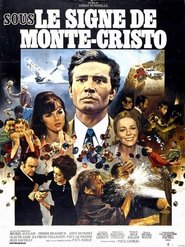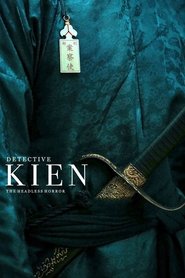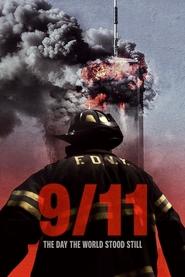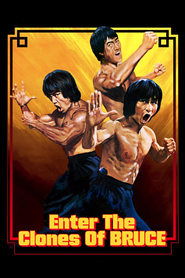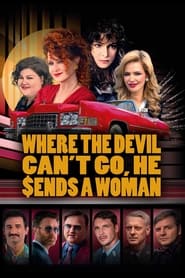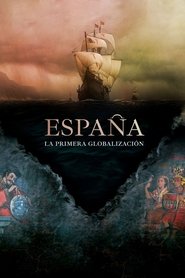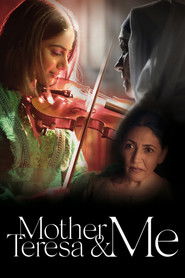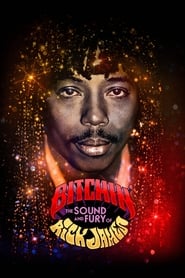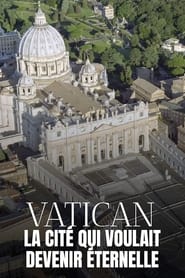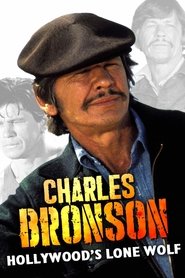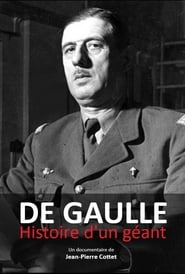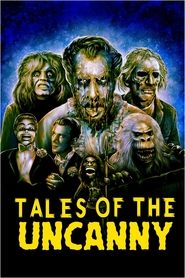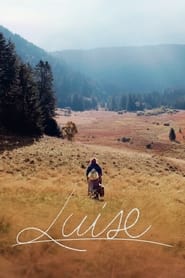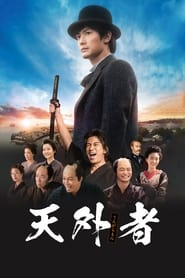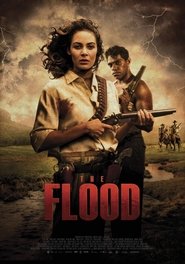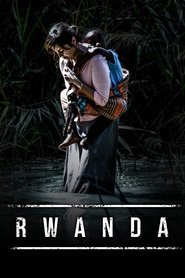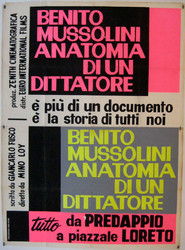Top Rated History Movies - Page 162
-
Sous le signe de Monte-Cristo
1968
star 6.5Edmond Dantès, who was active in the resistance against the Nazis, is accused for being a Nazi collaborator and is imprisoned in the fortress of Sisteron. -
Detective Kien: The Headless Horror
2025
star 7.9Detective Kien investigates a headless body found in a rural Vietnamese village during the Nguyen Dynasty. As supernatural elements emerge, he faces chilling twists in this 19th-century mystery. -
9/11: The Day the World Stood Still
2025
star 8.4It had been a crisp September morning like so many others. And then it was not. An explosion of evil would carve a path of death and destruction. The untold stories of resilience and unity from survivors pay tribute to hope amid tragedy. -
Les Misérables: The Story of Jean Valjean
2025
star 6Jean Valjean is released from prison after nineteen years of hard labor, violence, and suffering. Filled with anger and a deep sense of injustice, he has become a dangerous man who trusts no one and nothing. When he arrives in a small village in Provence, he is repeatedly turned away. Desperate, he unknowingly finds refuge at the house of Bishop Bienvenu, who lives simply, with his sister and a single servant. There, he is surprised by their warm welcome, and his inner demons start to waver. But the temptation to be what society sees in him still haunts him, and he steals the Bishop’s silverware. When the police ultimately catches him, the Bishop forgives him and gifts him the candlesticks. This acts becomes the starting point of Jean Valjean’ transformation into a new man who reclaims his humanity. -
Enter the Clones of Bruce
2023
star 7.9Get ready to play a game of death… and another… and another. This wild documentary dives into the Bruce Lee exploitation craze. -
The Chambermaid
2023
The Chambermaid
2023
star 5.8Just before World War 1, the fifteen-year-old poverty-stricken Anne from a small Slovak town is sent to Prague to be a maid in a wealthy family. She meets Resi, the daughter of a noble family, who was born and raised to be an adornment and a trophy – of the house, of her family, of Austria-Hungary. Anne and Resi, two girls born in the same year, but at the other ends of the social ladder, find a soulmate in each other. They become best friends, lovers and the only light in a male-dominated world. -
Where the Devil Can't Go, He Sends a Woman
2022
star 4.1Poland in the 80’s was a country ruled by crisis and a sense of hopelessness. Only few knew how to turn crisis into a business. It was a golden time for them. How did they know what would bring them money? How did they operate in a country where almost everything was forbidden? -
Spain: The First Globalization
2021
star 7.8A new reading of the historical period that began with the reign of the Catholic Monarchs (1479-1516) and the discovery of America (1492), as well as an analysis of its undeniable influence on the subsequent evolution of the history of Spain and the world. -
Mother Teresa & Me
2022
Mother Teresa & Me
2022
star 6.9Mother Teresa of Calcutta, one of the few canonized saints of our day, is discovered through the eyes of Kavita, a young Englishwoman abandoned by her boyfriend after she’s found to be pregnant. Kavita journeys to Calcutta to escape her pain and soon discovers that even holy people like Mother Teresa have to face life’s challenges and, in fact, struggle through years of spiritual crisis known as the “dark night of the soul”. Inspired by Teresa’s example of perseverance and compassionate love, Kavita rediscovers hope and purpose. -
Bitchin': The Sound and Fury of Rick James
2021
star 7.2This profile of legendary funk/R&B icon Rick James captures the peaks and valleys of his storied career to reveal a complicated and rebellious soul, driven to share his talent with the world. -
Blood Money: Inside the Nazi Economy
2021
star 7.9How did Nazi Germany, from limited natural resources, mass unemployment, little money and a damaged industry, manage to unfurl the cataclysm of World War Two and come to occupy a large part of the European continent? Based on recent historical works of and interviews with Adam Tooze, Richard Overy, Frank Bajohr and Marie-Bénédicte Vincent, and drawing on rare archival material. -
The Untold Story of the Vatican
2020
star 7.3What started as a simple tomb became over a 2,000 years history the universal seat of Christendom and is today one of the most visited museum in the world with invaluable collections of Arts, Manuscripts, Maps. Using spectacular 3D modelisation and CGI to give viewers as never before a true understanding of the history of this architectural masterpiece and its extensions, the film will also use animation to tell relevant historical events. This heritage site reveals new untold secrets with the help of historians deciphering the Vatican’s rich archives and manuscripts collection and following the restorations at work (newly discovered frescoes by Raphael) and recent excavations. A story where Religion, Politics, Arts and Science meet to assert religious authority and serve as a spiritual benchmark. -
Charles Bronson: The Spirit of Masculinity
2020
star 7.8With his grizzled moustache and chiselled features, Charles Bronson is the embodiment of a slightly archaic, brooding and almost reactionary virility. But who is he really? Often hired to play marginalised Native American or Mexican characters before he was typecast as the image of a lone killer, Bronson was a major figure in the popular cinema of the 1960s and 70s and his stony-faced, physical acting and career are worthy of a second look. -
De Gaulle, histoire d'un géant
2020
star 7.550 years after the death of General De Gaulle, this film retraces his life, from his birth in 1890 to his burial at Colombey-Les-Deux-Eglises in 1970. -
Tales of the Uncanny
2020
-
Luise
2023
Luise
2023
star 4.1Summer, 1918. Two young women, Luise and Elsa live alone on a secluded farm in Alsace. As young German deserter Hermann comes along, a new relationship forms between the three, filled with love, competition and hate. -
Godai - The Wunderkind
2020
star 7.4A biographical story of Tomoatsu Godai, the influential entrepreneur of the Meiji era who laid the foundation of the modern Japanese economy. -
The Flood
2020
The Flood
2020
star 4.4When Jarah loses her husband, her child, her land and her innocence she embarks on a brutal journey of of retribution and revenge that transforms into redemption and reconciliation. -
Rwanda
2019
Rwanda
2019
star 7.5Two white Italian actors play Black Rwandans in a fact-based tale set during the Rwanda genocide.
 Netflix
Netflix
 Amazon Prime Video
Amazon Prime Video
 Apple iTunes
Apple iTunes
 Apple TV Plus
Apple TV Plus
 Disney Plus
Disney Plus
 Google Play Movies
Google Play Movies
 Paramount Plus
Paramount Plus
 Hulu
Hulu
 HBO Max
HBO Max
 YouTube
YouTube
 fuboTV
fuboTV
 Peacock
Peacock
 Peacock Premium
Peacock Premium
 Amazon Video
Amazon Video
 The Roku Channel
The Roku Channel
 AMC+
AMC+
 Kocowa
Kocowa
 Hoopla
Hoopla
 The CW
The CW
 Vudu
Vudu
 Starz
Starz
 Showtime
Showtime
 PBS
PBS
 Pantaflix
Pantaflix
 FXNow
FXNow
 Tubi TV
Tubi TV
 Kanopy
Kanopy
 Comedy Central
Comedy Central
 Crunchyroll
Crunchyroll
 Microsoft Store
Microsoft Store
 Redbox
Redbox
 Sun Nxt
Sun Nxt
 ABC
ABC
 DIRECTV
DIRECTV
 Crackle
Crackle
 Fandor
Fandor
 Plex
Plex
